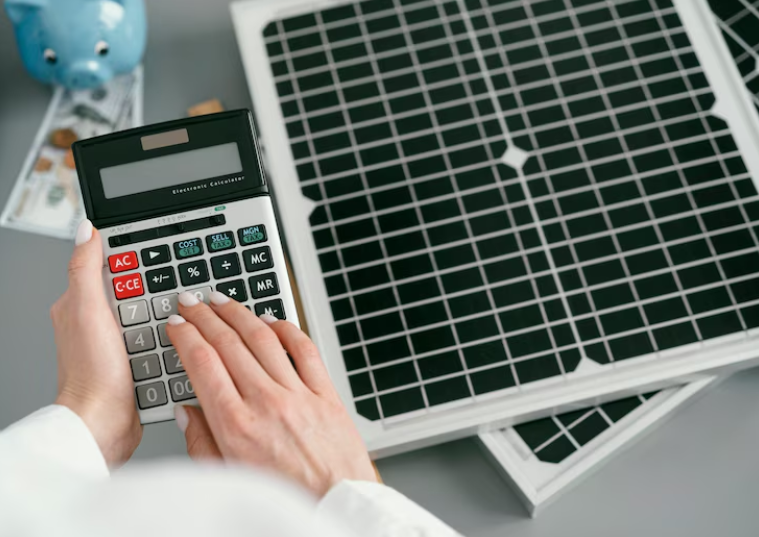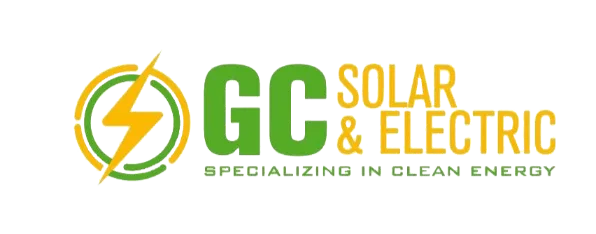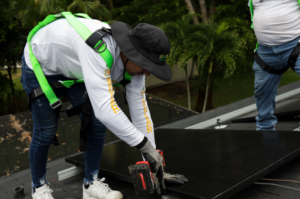

The first step in calculating the ROI of your solar panel system is to assess your current energy consumption. Take a look at your utility bills to understand how much electricity you use on a monthly and yearly basis. This will give you a clear baseline to measure potential savings.
Miami’s tropical climate means more hours of sunlight throughout the year, making it an ideal location for solar panel for home use. With long sunny days, your system can generate more electricity than in other regions with less sunlight.
The next step is to estimate how much electricity your solar panel Miami system can produce. This will depend on factors like:
Hours of sunlight: Miami receives around 5-6 hours of peak sunlight per day on average. This high solar potential makes it one of the best locations for solar installations.
System size: The size of your solar panel installation will directly impact the amount of energy generated. A larger system will produce more electricity, potentially covering all or most of your energy needs.
Orientation and tilt: The way your panels are installed, including their angle and direction, will also affect efficiency. Most installers, like GC Solar & Electric, will optimize your system to maximize energy production based on your home’s unique positioning.
Once you have an estimate of how much energy your system will produce, it’s time to calculate the savings on your electricity bill. Every kilowatt-hour (kWh) your system produces is a kWh you won’t need to purchase from your utility company.
Miami’s electricity rates are generally above the national average, making the potential savings from solar even more significant. If your solar panel system produces more electricity than your home consumes, you can even sell the excess power back to the grid through net metering, further increasing your savings.
In Miami, both federal and local incentives can drastically improve your ROI. The federal solar tax credit allows you to deduct a percentage of your system’s cost from your federal taxes. Additionally, Florida’s property tax exemption ensures that installing solar panels will not increase your property taxes, even though it raises the value of your home.
Working with an experienced company like GC Solar & Electric will ensure you take full advantage of all available incentives and rebates, further reducing your upfront investment.
The payback period is the time it will take for your energy savings to cover the initial cost of your solar panel installation. To calculate this:
Total system cost: Start with the total cost of your solar panel system (after incentives and rebates).
Annual savings: Divide the total system cost by your estimated annual savings on electricity.
Payback period: This will give you the number of years it will take to pay off your system. Typically, systems in Miami have payback periods of around 7-10 years, after which you’ll enjoy free electricity for the lifespan of your panels, which usually lasts 25+ years.
Once you’ve paid off your system, the electricity it generates is essentially free, allowing you to enjoy substantial savings for decades. Additionally, solar panel systems require minimal maintenance, especially when you rely on a trusted solar service provider like GC Solar & Electric for installation and upkeep.
If you’re a business owner, commercial solar installation offers even greater savings, reducing operational costs and increasing your property’s value, all while helping you meet sustainability goals.
GC Solar & Electric is a leading solar provider in Miami, offering both residential and commercial solar installation services. With a deep understanding of the local climate and electricity market, GC Solar & Electric ensures you get the most out of your solar system. Whether you’re looking for a solar panel for home or a large-scale commercial installation, GC Solar & Electric delivers top-quality installations and reliable solar service to help you achieve maximum energy savings.
1. How long does a solar panel system last?
Most solar panel systems last for 25-30 years with minimal maintenance.
2. Can solar panels work during cloudy or rainy days in Miami?
Yes, solar panels still generate electricity on cloudy or rainy days, though production will be lower compared to sunny days.
3. How much maintenance do solar panels require?
Solar panels require minimal maintenance. Occasional cleaning and annual check-ups, typically handled by your solar service provider, are usually sufficient.
4. What happens if my solar panels produce more energy than I use?
If your solar panel system produces excess electricity, the surplus is sent back to the grid, and you can earn credits through net metering.
5. How can I find out the cost of installing solar panels on my property?
For a detailed quote and to learn more about your potential savings, visit the GC Solar & Electric website to request a consultation.
By following these steps and working with a reliable provider like GC Solar & Electric, you can confidently calculate the ROI of your solar panel system and start enjoying long-term savings on your energy bills in sunny Miami.




